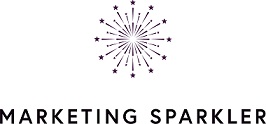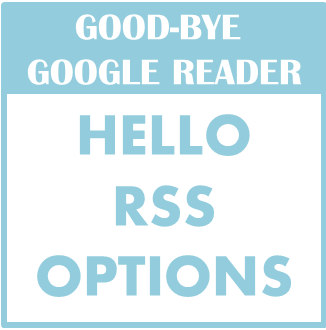Looking for an RSS reader now that Google Reader is gone? You’re in luck! Keep reading…
*Updated post: As of July 1, 2013, Google Reader is no more.
Bummer, I loved Google Reader.
As I am often asked what I’m using or doing when it comes to digital changes, I figured, why not write this quick post to answer the question? I know tons of people have written posts regarding Google Reader alternatives. In an effort to save you as much trouble (and research) as I can, I’ve provided a few recommendations.
Alternatives to Google Reader
Option A: Specific Feeds
Specific Feeds is an RSS reader that I hadn’t heard of until one of the founders tweeted me about it. (Yes, they know how to rock social media!)
Ok, I have to say I am beyond impressed and here’s why: it solves the content overload issue. You can subscribe to feeds based on the tags alone. For example, if you subscribe to those huge sites that post 20 articles daily, and only a couple use tags that interest you, you don’t have to overload your rss feed with the entire stream. (This was a major time waster for me.) But with Specific Feeds I can segment what I follow on each blog by the tag(s) I’m interested in. Sweet! Wanna learn more, read this post and then take it for a test drive!
Price: FREE
Option B: Feedly
From what I initially read, Feedly is the closest alternative to Google Reader so I gave it a try. Yup, I’m lovin it! If you’re using Google Reader, it will autosync all your RSS feeds so you don’t have to re-subscribe to blogs. It’s most similar to Google Reader, it has a nice clean layout, it’s easy to use, and there are apps for iOS and Android. I’m using Feedly as my Google Reader alternative and it’s pretty much the same platform!
Price: FREE
Option C: Netvibes
Netvibes is a super dashboard that tracks real-time web conversations about topics of your choosing. You can add widgets to keep up to date with your latest interests, and segment content based on where the conversations are happening – search engines, videos, tweets, etc. On the surface they look to focus on expensive social analytics, but registering for a free account will give you a robust feed option. I’m using it to track content all across the web, based on specific keywords.
They wrote nice blog post that explains how to migrate from Google Reader to Netvibes here.
PRICE: FREE for individuals
Option D: BlogLovin
If you previously used Google Reader, you can import all of your blogs to Bloglovin’ (it will prompt you to do this – no crazy technical skills required). You’ll have a list of all your blogs – next to each blog is an easy way to unfollow or to assign them to a group.
PRICE: FREE
There are several alternatives to using RSS readers, because there are so many ways in which we digest content these days. I’ve even read a few articles on the death of the RSS reader, but I’m not buying into that just yet. If you have to curate content for multiple industries, or you’re an avid reader who can’t afford to have all this information invading your inbox, RSS readers are cost-effective and ideal to aggregate content.
Not using an RSS reader? Wondering if you should? Click here for ideas on using RSS for business.
While we’re on the subject of RSS feeds,
what are you doing to manage your blog’s RSS feed?
If you use Feedburner, read this!
Since many bloggers use Feedburner as their subscription platform, and many readers use Google Reader as their RSS of choice, I’m certain your Feedburner stats are going to drop considerably. Secondly, Feedburner is owned by Google. If Google is dissolving their RSS platform, I’m going to take a guess that Feedurner may be next to get cut. I’m just spitballin’ here, but it’s something to think about.
Options for your blog and your RSS feed
If you’re a blogger it may be time to take action! You undoubtedly have RSS subscribers who use Google Reader, so what should you do to make sure you don’t lose them?
Alert your existing RSS subscribers
If you have a blog, you most likely have RSS subscribers who are using Google Reader. In an effort to maintain those subscribers, I would recommend you mention the retirement of Google Reader. You can do this by writing a post for your audience with a recommended RSS reader, explain how to use it, and an opt-in form for RSS subscribers to switch over.
I don’t know of a way to alert your RSS subscribers, unless you write a post about the loss of Google Reader. Feel free to link to this post and save yourself some time.
Option A: Use a New RSS Subscription Service
From what I’ve read, FeedBlitz is the way to go if you want to use a 3rd party platform to transition your RSS subscriptions away from FeedBurner. Your RSS subscriptions are free, and you pay for those that subscribe via email.
You could always separate your RSS subscriptions from your email subscriptions. There’s no rule that they have to stay married. I separated mine and life has been peachy.
I understand Digg is building an alternative to Google Reader. I presume it will be ready prior to the July 1 shutdown of Google Reader.
Option B: Bring your RSS in-house
Instead of using a 3rd party app to manage your RSS subscriptions, why not use your own website?
If your website platform allows the use of your own RSS subscription, why not use it? If you want to stop directing your RSS feed links to a 3rd party service, change the url back to your standard RSS feed. Usually http://yourblog.com/feed/. You’ll essentially own your own RSS feed. I moved my RSS feed in-house several months ago when Feedburner went on the fritz.
…and don’t overlook email subscriptions
You can use this time to put more emphasis on your email subscription option for your blog. You’ll build a captive audience, one that welcomes your blog posts, you can automate your posts to go out on set days/times, you can provide exclusive content for your loyal audience, etc. (I do all of this, my email subscribers get extra goodies).
I hope I’ve given you enough resources and ideas to help you navigate the RSS waters. If you have an RSS reader that you’re using and can’t live without, please leave a comment and add to the list!
Ciao,
Miss Kemya




[…] As a bonus, you will also want to offer your readers the option of subscribing to your RSS feed. Many blog readers use RSS readers to follow their favorite blogs and keep their inboxes clutter free. Learn more about RSS readers here. […]
[…] It is an easy way for them to keep up with your blog without spending all day online. Check out this article for more information on using RSS […]
[…] an RSS reader will allow you to keep up with trending topics by following the leading sites, experts, authorities […]
[…] course there are several more RSS Readers out there! Check out my earlier post Alternatives to Google Reader for more information and resources on using RSS feeds to follow and share your […]
This is a very helpful post. I was also a faithful Google Reader fan and decided to go with Netvibes as my alternative until I stumbled upon Freely. Totally love it, very easy to use, neat and clean platform.
I also wrestled with deciding should I go with a 3rd party RSS feed or go back to using my primary RSS on my website, which I ended up doing.
Definitely sharing this post!
I’m glad this was helpful Tamyka! I needed this info for myself, so I assumed other people needed it as well. I’m actually using NetVibes and Feedly, I rely on my RSS feeds so much that I figured I better have more than one alternative. Thank you for sharing this post, and thanks for your comment!